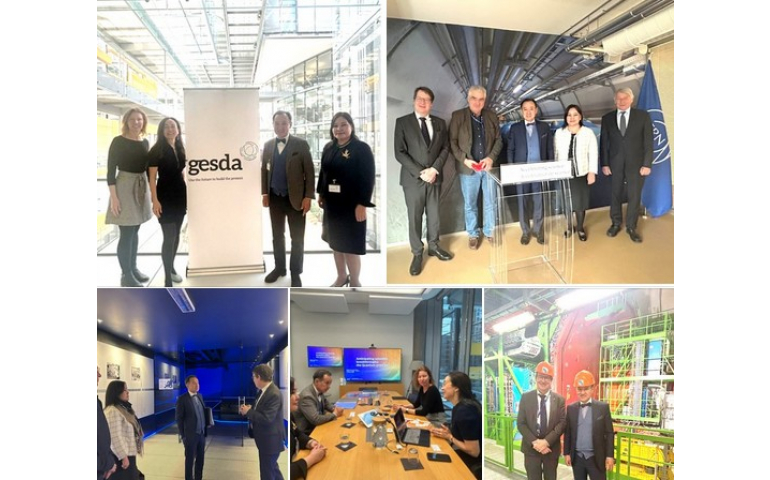EXCHANGED OF VIEWS ON SCIENCE DIPLOMACY
Member of the State Great Khural (Parliament) of Mongolia and Chairman of the Standing Committee on Justice Mr. Damdin Tsogtbaatar visited the Geneva Science Diplomacy Anticipator (GESDA) in Geneva.
The Geneva Science Diplomacy Anticipator (GESDA), initiated and supported by the Swiss Federal Government and the Government of the Geneva Canton, aims to provide equitable access to the rapid advancements in digital technologies, artificial intelligence, and robotics to the world, especially to the people of developing countries. The organization endavours to create tools for anticipating, planning, and addressing global issues based on scientific achievements projected for the next 5, 10, and 25 years. GESDA collaborates extensively with public and private sector stakeholders, including international scientists and researchers, politicians, diplomats, international organizations and businesses.
During the meeting, the parties discussed the importance and prospects of science diplomacy and expressed their willingness to further cooperation.
MP Damdin Tsogtbaatar, toured the European Organization for Nuclear Research (CERN) at the end of his visit in Geneva. He was briefed on CERN's operations and its extensive collaborative efforts with global research institutions.
Established in 1954, CERN is a premier institution for advanced physics research, technology transfer, and multi-level training programs. The organization employs 2,600 permanent staff and 1,500 temporary staff, who engage in rigorous daily research activities. CERN's research and information base is actively utilized by over 12,000 scientists and engineers from 113 countries, representing 608 universities and research institutes. CERN currently cooperates with its 24 Member states, 10 Associate member states, 5 Observer states/organizations, and approximately 50 Non-member states with cooperation agreements.
At the meeting, CERN leaders offered a comprehensive discussion followed by a stimulating visit at the CERN campus. Both parties emphasized the significance of enhancing scientific collaboration, implementing joint projects under the Memorandum of Understanding between the Government of Mongolia and CERN which was signed in 2014, and actively involving Mongolian teachers and students in various term of trainings and researches by CERN.


